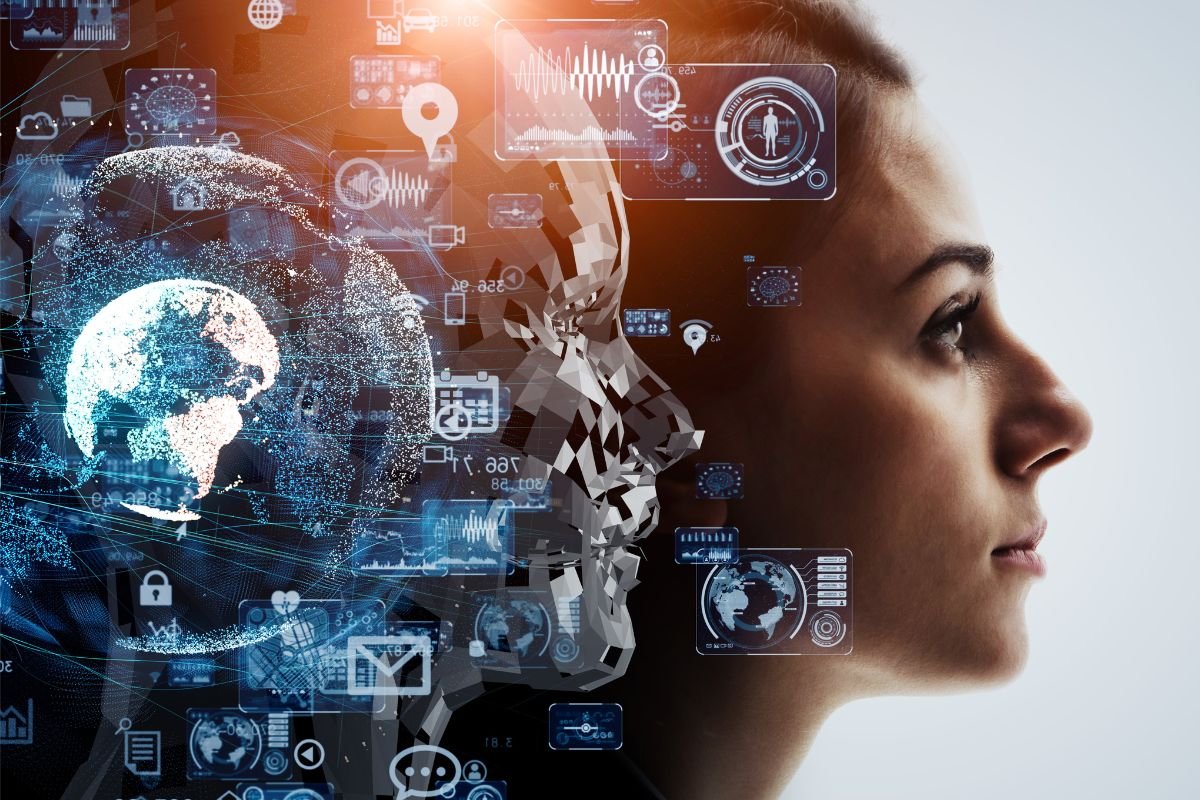AI: The Future of Technology
Artificial Intelligence (AI) is no longer a concept confined to science fiction; it is a transformative force that is reshaping industries, economies, and the very fabric of society. From self-driving cars to intelligent virtual assistants, AI is infiltrating every aspect of our lives, promising to revolutionize the way we live, work, and interact with the world. As we move deeper into the 21st century, AI stands poised to become the cornerstone of technological advancement, driving innovation and unlocking unprecedented possibilities.
The Rise of AI: A Brief Overview
The development of AI has been a gradual process, marked by significant milestones that have brought us to the current era of rapid AI adoption. Early AI research in the mid-20th century focused on developing machines that could perform tasks requiring human-like intelligence, such as problem-solving, learning, and natural language processing. However, it wasn’t until the advent of powerful computing resources, vast amounts of data, and advanced algorithms that AI truly began to flourish.
Today, AI is an umbrella term that encompasses a variety of technologies, including machine learning (ML), natural language processing (NLP), computer vision, and robotics. These technologies enable machines to learn from data, understand and interpret human language, recognize patterns, and even make decisions. The convergence of these AI technologies is creating a new wave of innovation that is set to redefine industries and change the way we interact with technology.
AI in Everyday Life: Transforming How We Live
AI has already made significant inroads into our daily lives, often in ways that we may not even realize. Consider the following examples:
- Virtual Assistants: Siri, Alexa, and Google Assistant are AI-driven virtual assistants that have become integral to how we manage our daily tasks. These assistants leverage NLP to understand and respond to voice commands, helping us set reminders, answer questions, control smart home devices, and much more.
- Personalized Recommendations: AI algorithms power the recommendation engines of platforms like Netflix, Amazon, and Spotify. By analyzing user behavior and preferences, these algorithms suggest content, products, and music tailored to individual tastes, enhancing user experience and driving engagement.
- Healthcare: AI is revolutionizing healthcare by enabling early diagnosis, personalized treatment, and improved patient outcomes. AI-powered tools can analyze medical images, predict disease progression, and even assist in surgery, making healthcare more efficient and accessible.
- Autonomous Vehicles: Self-driving cars are one of the most visible applications of AI. Companies like Tesla, Waymo, and Uber are developing autonomous vehicles that use AI to navigate roads, avoid obstacles, and make real-time decisions, promising to reduce accidents and transform transportation.
- Smart Home Devices: AI is at the heart of smart home technology, from thermostats that learn your temperature preferences to security systems that detect unusual activity. These devices make our homes more comfortable, secure, and energy-efficient.

AI in Industry: Driving Innovation and Efficiency
Beyond consumer applications, AI is having a profound impact on industries across the board. Businesses are leveraging AI to drive innovation, improve efficiency, and gain a competitive edge. Here are a few examples:
- Manufacturing: AI is revolutionizing manufacturing by enabling predictive maintenance, optimizing production processes, and enhancing quality control. AI-driven robots are increasingly being used to perform complex tasks with precision and consistency, reducing the need for human labor in dangerous or repetitive roles.
- Finance: In the financial sector, AI is being used to detect fraud, automate trading, and provide personalized financial advice. AI algorithms can analyze vast amounts of data in real-time, identifying patterns and trends that would be impossible for humans to detect, leading to better investment decisions and improved risk management.
- Retail: AI is transforming retail by enabling personalized shopping experiences, optimizing inventory management, and enhancing customer service. Retailers are using AI to analyze customer data, predict demand, and even develop new products based on consumer preferences.
- Agriculture: AI is helping farmers increase yields, reduce waste, and optimize the use of resources. AI-powered drones and sensors can monitor crop health, detect pests, and provide real-time data on soil conditions, enabling farmers to make informed decisions and improve efficiency.
- Energy: The energy sector is using AI to optimize energy production, distribution, and consumption. AI can analyze data from sensors in power grids to predict and prevent outages, manage demand, and even optimize the integration of renewable energy sources.
The Ethical Implications of AI
As AI becomes more pervasive, it raises important ethical questions that society must address. The potential for AI to displace jobs, perpetuate biases, and infringe on privacy are significant concerns. For example, AI algorithms trained on biased data can reinforce stereotypes and lead to unfair treatment in areas such as hiring, lending, and law enforcement.
Additionally, the increasing reliance on AI for decision-making raises questions about accountability and transparency. Who is responsible when an AI system makes a mistake? How can we ensure that AI operates in a way that aligns with our values and principles?
To address these challenges, it is crucial to develop robust ethical guidelines and regulatory frameworks that govern the use of AI. This includes ensuring that AI systems are transparent, fair, and accountable, and that they are designed with privacy and security in mind. Collaboration between governments, industry, and academia will be essential in creating a future where AI benefits everyone.
The Future of AI: What’s Next?
As we look to the future, AI is set to play an even more central role in our lives. Advances in AI research are likely to lead to the development of more sophisticated AI systems capable of performing tasks that were once thought to be the exclusive domain of humans. This includes everything from creative endeavors, such as writing and art, to complex decision-making in areas like healthcare and finance.
One of the most exciting prospects is the potential for AI to drive breakthroughs in other fields of science and technology. For example, AI is being used to accelerate research in areas like drug discovery, climate modeling, and quantum computing. By automating routine tasks and providing new insights from data, AI has the potential to accelerate the pace of innovation and solve some of the world’s most pressing challenges.
However, the future of AI is not without its risks. The development of AI-powered weapons, the potential for mass surveillance, and the loss of jobs due to automation are all concerns that must be addressed. As we continue to advance AI technology, it is imperative that we do so responsibly, with a focus on ensuring that AI is used for the benefit of all.
Conclusion
AI is undoubtedly the future of technology, offering the potential to transform every aspect of our lives, from how we work and communicate to how we solve complex problems and innovate. As AI continues to evolve, it will bring new opportunities and challenges that will shape the world in ways we can only begin to imagine. To fully realize the benefits of AI, it is essential that we approach its development and deployment with a clear understanding of its potential impact and a commitment to ethical principles that prioritize human well-being. In doing so, we can harness the power of AI to create a brighter, more equitable future for all.

